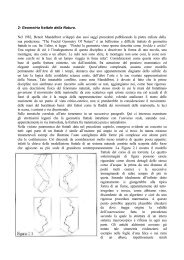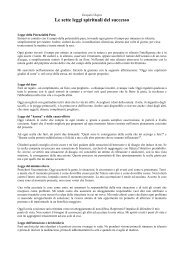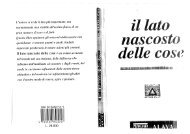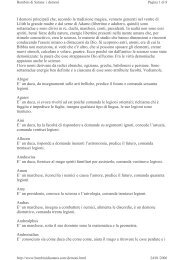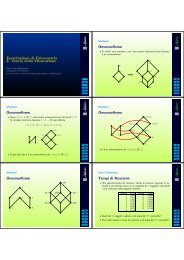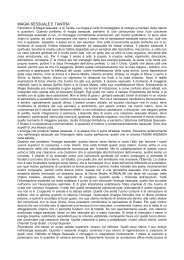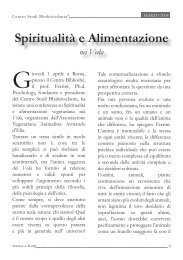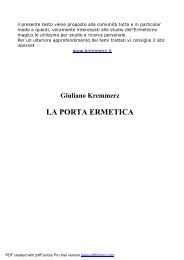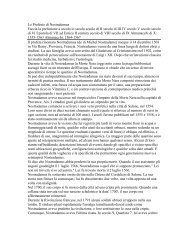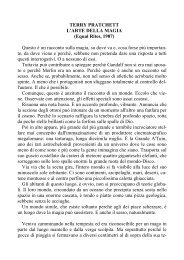208 ~ TALIBANbeen disarmed- The economy is a black hole that is sucking in its neighbourswith illicit trade and the smuggling of drugs and weapons, underminingthem in the process. 'It will take at least ten to 15 years beforethere will be a functioning central authority capable of doing the minimumof the administration needed for the development of the country.And that is, in my view, a rather optimistic statement,' said Swedishaid-worker Anders Fange. 4Complex relationships of power and authority built up over centurieshave broken down completely. No single group or leader has the legitimacyto reunite the country. Rather than a national identity or kinshiptribal-basedidentities, territorial regional identities have become paramount.Afghans no longer call themselves just Afghans or even Pashtunsand Tajiks, but Kandaharis, Panjshiris, Heratis, Kabulis or Jowzjanis. Fragmentationis both vertical and horizontal and cuts across ethnicity toencompass a single valley or town. The Pashtun tribal structure has beendestroyed by the loss of common tribal property and grazing grounds, andby war and flight. The non-Pashtun identify their survival with individualwarrior leaders and the valley of their birth.The tribal hierarchy which once mediated conflicts has been killed oris in exile. The old, educated, ruling elite fled after the Soviet invasionand no new ruling elite has emerged in its place which can negotiate apeace settlement. There is no political class to compromise and makedeals. There are lots of leaders representing segments of the population,but no outright leader. In such a scenario, with no end to the war insight, the question of whether Afghanistan will fragment and send wavesof ethnic fragmentation and instability spinning through the region,becomes paramount.Much of the blame for the continuation of the war lies in the hands ofoutsiders who continue to back their proxies in an ever-increasing spiralof intervention and violence. The FSU began the process with its brutalinvasion of Afghanistan, but suffered hugely. 'We brought Afghanistanwith us -T- in our souls, in our hearts, in our memory, in our customs, ineverything and at every level,' said Alexander Lebed, who served as amajor in the Soviet army in Afghanistan and is now a presidential candidate."This feeble political adventure, this attempt to export a stillunproved revolution, marked the beginning of the end,' he added. 5The Afghan Mujaheddin contributed to the demise of the SovietUnion, the Soviet empire and even communism itself. While the Afghanstake all credit for this, the West has gone the other way, barely acknowledgingthe Afghan contribution to the end of the Cold War. The withdrawalof Soviet troops from Afghanistan heralded the end of the Gorbachovexperiment in perestroika and glasnost - the idea that the Sovietsystem could be changed from within. There is a lesson to be learnt hereCONCLUSION: THE FUTURE OF AFGHANISTAN ~ 209for today's meddlers - those who intervene in Afghanistan can face disintegrationthemselves — not because of the power of the Afghans, butbecause of the forces that are unleashed in their own fragile societies.By walking away from Afghanistan as early as it did, the USA facedwithin a few years dead diplomats, destroyed embassies, bombs in NewYork and cheap heroin on its streets, as Afghanistan became a sanctuaryfor international terrorism and the drugs mafia. Afghans today remaindeeply bitter about their abandonment by the USA, for whom they foughtthe Cold War. In the 1980s the USA was prepared 'to fight till the lastAfghan' to get even with the Soviet Union, but when the Soviets left,Washington was not prepared to help bring peace or feed a hungry people.Regional powers took advantage of the political vacuum the US retreatcreated, saw an opportunity to wield influence and jumped into the fray.Today the USA, by picking up single issues and creating entire policiesaround them, whether it be oil pipelines, the treatment of women orterrorism, is only demonstrating that it has learnt little. The abortiveUnocal project should have taught many lessons to US policy-makers,but there appear to be no signs of it as US diplomats scurry across CentralAsia trying to persuade oil companies and governments to commit tobuilding a main export pipeline from Baku to Ceyhan. But even that islikely to be indefinitely delayed. The start-up for construction scheduledfor the year 2000 has been progressively delayed to 2003 and mostrecently to 2005. 6The lessons from the Unocal project are several. No major pipelinefrom Central Asia can be built unless there is far greater US and internationalcommitment to conflict resolution in the region - in Afghanistan,Tajikistan, Nagorno-Karabakh, Chechnya, Georgia and with the Kurds.The region is a powder keg of unresolved conflicts. Nor can secure pipelinesbe built without some degree of strategic consensus in the regionIran and Russia cannot be isolated from the region's development foiever. They will resist and sabotage projects as long as they are not a partof them. Nor can pipelines be built when ethnic conflicts are tearingstates apart. Ethnicity is the clarion call of the modern era. Trying toresolve ethnic problems and keep states together needs persistent andconsistent diplomacy rather than virtual bribes to keep various warlordsquiet.Oil companies cannot build pipelines which are vulnerable to civilwars, fast-moving political changes and events, instability and an environmentbeset by Islamic fundamentalism, drugs and guns. The old GreatGame was about perceived threats in which force was never directly used.Russia and Great Britain marked out borders and signed treaties, creatingAfghanistan as a buffer between them. The new Great Game must be onewhere the aim is to stabilize and settle the region, not increase tensions
210 — TALIBANand antagonism. The USA is the only world power which has the abilityto influence all the neighbouring states to stop interfering in Afghanistan.It has to do so with far more commitment than it has demonstrated sofar.Pakistan, weakened by the demise of its strategic partnership with theUSA after the end of the Cold War and in the throes of a deep economiccrisis, was nevertheless determined to extend its zone of influence bytrying to nominate the next government in Kabul. Faced with a belligerentIndian neighbour seven times its size, Pakistan's obsession with securityhas naturally shaped its domestic politics and foreign policy concernssince it was created in 1947. But the military-bureaucratic-intelligenceelite that has guided Pakistan's destiny since the 1950s has never allowedcivil society to function. Only this elite has had the right to determinethe nature of the threat to Pakistan's national security and its solutions —not elected governments, parliament, civic organizations or even commonsense.Since 1988, four elected governments have been dismissed, ten governmentshave come and gone and domestic stability is still as distant adream as ever. 7 With such deep crises of identity, political legitimacy,economic mismanagement and social polarization, the elite has neverthelessindulged in the worst example of imperial overstretch by any thirdworld country in the latter half of this century. Pakistan is now fightingproxy wars on two fronts, in Kashmir and Afghanistan and even thoughthe repercussions from these wars - Islamic fundamentalism, drugs,weapons and social breakdown - are now aggressively spilling into thecountry, there is no reappraisal or policy review. Pakistan is now ripe for aTaliban-style Islamic revolution, which would almost certainly jeopardizestability in the Middle East, South and Central Asia.What Pakistan's policy-makers have failed to realize is that any stablegovernment in Kabul will have to depend on Pakistan for reconstruction,foodstuffs, fuel and access to the outside world. Pakistan's own economywould benefit as it would provide workers, technicians and materials forAfghanistan's reconstruction. The Afghan refugees would return, easingthe financial burden of sustaining them and Pakistan could begin to reassertsome control over its dilapidated state institutions and borders.While Pakistan has had a forward policy in Afghanistan, Iran's interferencehas essentially been defensive, maintaining a limited influence andresisting a total Taliban takeover. But Iran has contributed heavily to thefragmentation of Afghanistan by playing the Shia card, the Persian languagecard and keeping the very ethnic groups it supports divided amongstthemselves. The disparateness of the Hazaras and the Uzbeks, the twoethnic groups Iran has provided the most aid to, is sufficient to show howIran's policy of divide and rule has devastated the anti-Taliban alliance.CONCLUSION: THE FUTURE OF AFGHANISTAN ~ 211Iran's policies have reflected the intense power struggle within the Iranianelite which has only intensified in the last two years.Moreover, the complete breakdown of trust and understanding betweenIran and Pakistan has set back the peace process and proved ruinous forthe Afghans. There is no common ground between the two states on asolution to the Afghan civil war and even more ominously both states arefunding proxy wars between Shias and Sunnis in each other's countries aswell as in Afghanistan, increasing the likelihood of a major sectarianexplosion in the region. With the advent of the Taliban, sectarianismand ethnic/sectarian cleansing has reared its ugly head for the first timein Afghanistan's history.The Central Asian states are the new players on the block, but theyhave quickly taken to protecting what they see as threats to their nationalinterests. Pashtun domination of Afghanistan does not suit them and theyabhor the kind of Islamic sentiments the Taliban espouse. Until theirethnic cousins in Afghanistan are part of some power-sharing formula inKabul, the Central Asian states will not cease to aid them to resist theTaliban. This places in jeopardy Pakistan's plans for accessing pipelineand communication routes across Afghanistan from Central Asia. If theTaliban were to conquer the entire country, the Central Asian stateswould have to accept the Taliban reality, but they would be unlikely totrust their energy exports to go through Taliban controlled Afghanistanand Pakistan.Saudi Arabia, it appears, has proved incapable of evolving a rationalforeign policy which suits its national interests rather than merely appeasingits domestic Wahabbi lobby. It took Mullah Omar to personally insultthe House of Saud before the Saudis pulled away from the Taliban. TheSaudi export of Wahabbism has now boomeranged back home and isincreasingly undermining the authority of the Royal Family. Osama BinLaden's critique of the corruption and mismanagement of the regime isnot falling upon deaf ears amongst the Saudi population. And unlessAfghanistan moves towards peace, dozens more Bin Ladens are ready andwaiting to take his place from their bases inside Afghanistan.For Muslims everywhere Saudi support for the Taliban is deeply embarrassing,because the Taliban's interpretation of Islam is so negative anddestructive. Increasingly, Western popular perception equates Islam withthe Taliban and Bin Laden-style terrorism. Many Western commentatorsdo not particularize the Taliban, but condemn Islam wholesale for beingintolerant and anti-modem. The Taliban, like so many Islamic fundamentalistgroups today, divest Islam of all its legacies except theology -Islamic philosophy, science, arts, aesthetics and mysticism are ignored.Thus the rich diversity of Islam and the essential message of the Koran —
- Page 1 and 2:
YALE NOTA BENE"The broader storyher
- Page 3 and 4:
TalibanMilitant Islam,Oil and Funda
- Page 5 and 6:
Vi ~ CONTENTSChapter 8A Vanished Ge
- Page 7 and 8:
AFGHANISTAN•^ UZBEKISTAN J TAJIKI
- Page 9 and 10:
2 ~ TALIBANaccounts for some 40 per
- Page 11 and 12:
"6 ~ TALIBANgas riches of landlocke
- Page 13 and 14:
10 ~ TALIBANgious mix that was to m
- Page 15 and 16:
Part 1History of theTaliban Movemen
- Page 17 and 18:
18 ~ ISLAM OIL AND THE NEW GREAT GA
- Page 19 and 20:
22 ~ ISLAM OIL AND THE NEW GREAT GA
- Page 21 and 22:
26 ~ ISLAM OIL AND THE NEW GREAT GA
- Page 23 and 24:
30 ~ ISLAM OIL AND THE NEW GREAT GA
- Page 25 and 26:
34 TALIBANKabul- Hikmetyar had alli
- Page 27 and 28:
38 ~ TALIBANrHERAT 1995: GOD'S INVI
- Page 29 and 30:
42 ~ TALIBANdo manage to take Kabul
- Page 31 and 32:
J46 ~ TALIBANgreater weight to UN e
- Page 33 and 34:
50 ~ TALIBANas they hung from steel
- Page 35 and 36:
54 ~ TALIBANthey would help rearm t
- Page 37 and 38:
58 TALIBANGul Mohammed Pahlawan, Gh
- Page 39 and 40:
62 TALIBAN2,500 Taliban, who had re
- Page 41 and 42:
66 TALIBANshould throw all aid agen
- Page 43 and 44:
70 ~ TALIBANyears of battle and hel
- Page 45 and 46:
74 ~ TALIBANThousands of Hazaras we
- Page 47 and 48:
78 TALIBANhas become a plague,' sai
- Page 49 and 50:
NEW STYLE FUNDAMENTALISM OF THE TAL
- Page 51 and 52:
86 TALIBANsity students - Hikmetyar
- Page 53 and 54:
90 TALIBANSharia was heavily influe
- Page 55 and 56:
94 TALIBANinflamed the debate in th
- Page 57 and 58:
98 TALIBANizing factor of Islam, it
- Page 59 and 60:
102 TALIBANadministrations made the
- Page 61 and 62: 106 ~ TAUBANfrom working, but it no
- Page 63 and 64: TALIBANUniversity, she held down a
- Page 65 and 66: 114 TALIBAN A VANISHED GENDER 115Ta
- Page 67 and 68: 118 TALIBANUS$1,300 - a small fortu
- Page 69 and 70: 122 TALIBANper cent of the total Pa
- Page 71 and 72: 126 TALIBANequipment, no electricit
- Page 73 and 74: 130 ~ TALIBANfight with the Mujahed
- Page 75 and 76: 134TALIBANAugust 1996 noted that Bi
- Page 77 and 78: 138 ~ TALIBANwho were using the Kho
- Page 79 and 80: 11DICTATORS AND OILBARONS: THE TALI
- Page 81 and 82: 146 TALIBAN DICTATORS AND OIL BARON
- Page 83 and 84: 150 — TALIBANgrowth of beards and
- Page 85 and 86: 154TALIBAN1998 when international o
- Page 87 and 88: 158 ~ TALIBANaround Afghanistan? Af
- Page 89 and 90: 162 TALIBAN ROMANCING THE TALIBAN 1
- Page 91 and 92: 166 TALIBAN ROMANCING THE TALIBAN 1
- Page 93 and 94: ROMANCING THE TALIBAN 2: 1997-99 17
- Page 95 and 96: 174 — TALIBANnon-Russian pipeline
- Page 97 and 98: 178 — TALIBANROMANCING THE TALIBA
- Page 99 and 100: 182 ~ TALIBANApril 1999. 'The US ha
- Page 101 and 102: 186 ~ TALIBANters or the transport
- Page 103 and 104: 190 ~ TALIBANThis Wild West of free
- Page 105 and 106: 194 ~ TALIBANgovernance. Pakistani
- Page 107 and 108: 198 TALIBAN SHIA VERSUS SUNNI: IRAN
- Page 109 and 110: 202 TALIBAN SHIA VERSUS SUNNI: IRAN
- Page 111: 206 — TALIBANin Afghanistan - to
- Page 115 and 116: 214 ~ TALIBANdrawn since 1996 - a P
- Page 117 and 118: 218 ~ TALIBANated and severely puni
- Page 119 and 120: Origins of Members of the Taliban M
- Page 121 and 122: APPENDIX 3 ~ 227Appendix 3A CHRONOL
- Page 123 and 124: 230 ~ TALIBANgraves near Shebarghan
- Page 125 and 126: 234 ~ TALIBAN8 June. US FBI places
- Page 127 and 128: 238 ~ TALIBAN1995 January16 MarchAp
- Page 129 and 130: 242 ~ TALIBANJune21 August10 Septem
- Page 131 and 132: 246 ~ TALIBANDupree, Nancy Hatch, A
- Page 133 and 134: 250 ~ NOTESChapter 31 Interview wit
- Page 135 and 136: 254 ~ NOTESmuddin, Religious Police
- Page 137 and 138: 258 NOTES13. The Japanese company M
- Page 139 and 140: 262 ~ NOTES28. Waxman, Sharon, 'A c
- Page 141 and 142: Abbas, Mulla Mohammed 22,61,100Abda
- Page 143 and 144: INDEX - 270Hazaras (continued)burea
- Page 145 and 146: INDEX ~ 274nF»r\/FaliViar» milita
- Page 147: INDEX ~ 278Talibans (continued)Sunn




